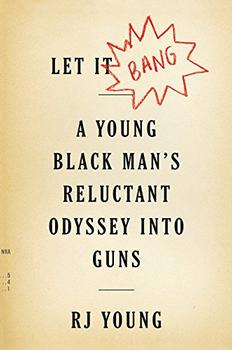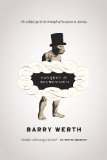Summary | Excerpt | Reading Guide | Reviews | Beyond the book | Read-Alikes | Genres & Themes | Author Bio

A Gilded Age Tale of Love and Deception Across the Color Line
by Martha A. SandweissThe secret double life of the man who mapped the American West and the woman he loved
Clarence King is a hero of nineteenth-century western history. Brilliant scientist and witty conversationalist, bestselling author and architect of the great surveys that mapped the West after the Civil War, King was named by John Hay “the best and brightest of his generation.” But King hid a secret from his Gilded Age cohorts and prominent family in Newport: for thirteen years he lived a double life—as the celebrated white explorer, geologist, and writer Clarence King and as a black Pullman porter and steelworker named James Todd. The fair, blue-eyed son of a wealthy China trader passed across the color line, revealing his secret to his black common-law wife, Ada King, only on his deathbed.
Noted historian of the American West Martha Sandweiss is the first writer to uncover the life that King tried so hard to conceal from the public eye. She reveals the complexity of a man who while publicly espousing a personal dream of a uniquely American “race,” an amalgam of white and black, hid his love for his wife and their five biracial children. Passing Strange tells the dramatic tale of a family built along the fault lines of celebrity, class, and race—from the “Todds” wedding in 1888 to the 1964 death of Ada, one of the last surviving Americans born into slavery, to finally the legacy inherited by Clarence King’s granddaughter, who married a white man and adopted a white child in order to spare her family the legacies of racism.
A remarkable feat of research and reporting spanning the Civil War to the civil rights era, Passing Strange tells a uniquely American story of self-invention, love, deception, and race
Sandweiss takes a mountain of information and transforms it into a smooth, captivating narrative. Interspersed with the grand and poetic language of the day, the documented dialogue of King's correspondences lends literary panache to this captivating tale of love and the expansion of the American west...continued
Full Review
 (694 words)
(694 words)
(Reviewed by Megan Shaffer).
Clarence King presented himself to Ada Copeland as Pullman porter James Todd with good reason; at the turn of the 20th twentieth century, only black men were hired as sleeping car porters. Introducing himself as a man of this profession would leave no doubt of his race, regardless of the color of his skin.
Developed by George Pullman in the mid-nineteenth century, the Pullman sleeping car was a luxurious addition to rapidly proliferating rail travel. Compartments outfitted with bunks allowed passengers to sleep during the night, making long trips far more comfortable.
 Many of the attendants, or porters, who serviced these new rail cars were freed slaves, making the occupation of Pullman porter one of the most common for black ...
Many of the attendants, or porters, who serviced these new rail cars were freed slaves, making the occupation of Pullman porter one of the most common for black ...

If you liked Passing Strange, try these:

by RJ Young
Published 2018
The quest, funny and searing, of a young black man learning to shoot—a fascinating odyssey into race, guns, and self-protection in America

by Barry Werth
Published 2011
In Banquet at Delmonico’s, Barry Werth, the acclaimed author of The Scarlet Professor, draws readers inside the circle of philosophers, scientists, politicians, businessmen, clergymen, and scholars who brought Charles Darwin’s controversial ideas to America in the crucial years after the Civil War.